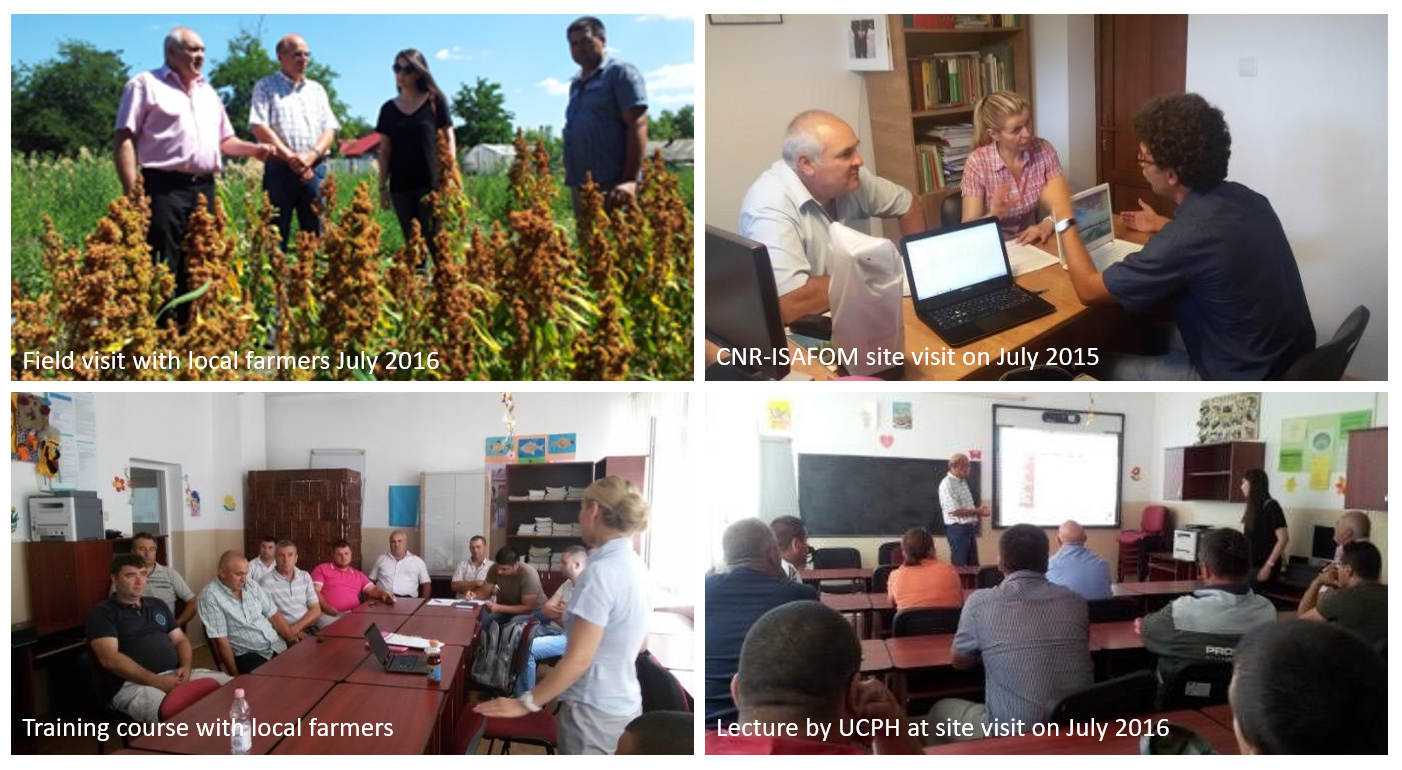The cultivation of quinoa in Romania was introduced for the first time in March 2015, supported by SATEAN FUNDATIA, a non-profit organisation located in Braila, in the South-East of Romania, as part of the PROTEIN2FOOD project. SATEAN works as a business incubator and business innovation centre, where they support start-ups in the early stages of development. With their expertise in entrepreneurship, communication and their wide network within Romania, as well throughout Europe, they have been key in identifying the relevant stakeholders for introducing quinoa to Romania.
As part of their work, SATEAN worked with 10 Romanian farmers on pilot cultivation of quinoa and provided trainings and materials. The farmers and other interested stakeholders, participated in training courses focused on the following topics:
- Introduction to the PROTEIN2FOOD project – focused on the project’s context, ambitions and aims, activities and expetected outcomes.
- Quinoa cultivation: characteristics and techniques –focused on cultivation, sowing and fertilisation of quinoa, the crop water requirements and irrigation, the biotic threats (pests and diseases), the seed harvest and post-harvest technolgies.
- Growing the quinoa: the potential of using natural enemies and chemical compounds in quinoa for biological control of insect pests – focused on the main pests of quinoa, insects that damange and benefit the quinoa crop, parasitoids, predators, entomophatogens, chemical responses of quinoa to insect herbivory, potential of biological control in quinoa and potential for ecological management of quinoa.
- Life Cycle of the quinoa and market expectations – focused on the phases of quinoa cultivation; the resistance to biotic stresses and to abiotic stresses; the plant morphology, the seed characteristics and the harvest index. The Romanian and European market expectations for quinoa production and the requirements of the industry and consumers were also examined.

